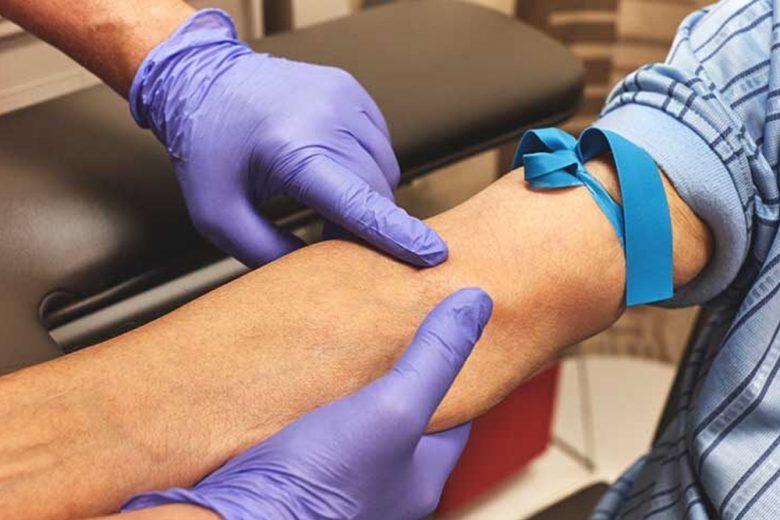People suffering from Alcohol Use Disorder might not be able to control how much and when they drink. They will also feel bad when they are not drinking and keep taking alcohol, regardless of whether it causes problems in their life. Even though it might feel like one is losing control completely, there are treatments available. People who binge drink regularly or drink heavily have a higher chance of suffering from Alcohol Use Disorder. Heavy drinking for men involves taking four or more drinks daily or more than 14 drinks weekly. Heavy drinking in women consists in taking three or more drinks daily and seven or more drinks weekly. However, there is no particular number of daily or weekly drinks to specify whether someone has the condition. A diagnosis will depend on the effects of alcohol in your life.
If you want to determine whether you have alcohol use disorder, you can see a healthcare professional who can conduct a formal evaluation. They will ask you specific questions about your drinking habits, like how often or how much you drink, whether your drinking has affected your work or relationships, and if you have engaged in risky behavior after drinking. You might have to fill out a questionnaire regarding your drinking habits. They will also ask you questions about your behaviors, feelings, thoughts, and symptoms to assess your mental health. Your health care professional might also ask to speak with your friends and family members, but they cannot give out any of your information without your permission. A physical exam can indicate how alcohol has affected your health and body through symptoms such as an increased heart rate, a change in blood pressure, a tender, enlarged liver, or a mild tremor. There are no specialized lab tests to diagnose alcohol addiction, but your physician can do some blood tests to determine the state of your liver since heavy drinking may affect it.
Blood Testing to Determine Alcohol Use
 Blood tests are very effective and accurate for identifying heavy alcohol use, and they can also be used to assess blood alcohol content or BAC properly. When you take a blood test, they measure the amount of ethanol (the primary component in alcoholic drinks) in your blood. When you take alcohol, it is absorbed into your bloodstream, and the liver processs it. Many people take unhealthy amounts of alcohol, and studies indicate that people who do this are likely to underrate how much they drink. This is why blood testing is an effective way to measure an individual’s actual alcohol consumption, particularly if they want to get treatment. Alcohol blood tests in health care are also used for people dealing with alcohol-related conditions such as liver damage or liver disease.
Blood tests are very effective and accurate for identifying heavy alcohol use, and they can also be used to assess blood alcohol content or BAC properly. When you take a blood test, they measure the amount of ethanol (the primary component in alcoholic drinks) in your blood. When you take alcohol, it is absorbed into your bloodstream, and the liver processs it. Many people take unhealthy amounts of alcohol, and studies indicate that people who do this are likely to underrate how much they drink. This is why blood testing is an effective way to measure an individual’s actual alcohol consumption, particularly if they want to get treatment. Alcohol blood tests in health care are also used for people dealing with alcohol-related conditions such as liver damage or liver disease.
Blood tests can effectively detect heavy drinking in individuals, but timing is essential for the results to be accurate. Typically, an alcohol blood test is only precise within six to twelve hours of taking your last alcoholic beverage. A blood test can help determine if one is using alcohol excessively and if they have any liver damage. They can also determine if there are any changes in your alcohol use during alcoholism treatment and recovery. Generally, blood alcohol tests evaluate indirect and direct biomarkers. Most blood tests are based on measuring indirect biomarkers, which indicate how your body and organs are operating. If your body’s indirect biomarkers are not within the normal limits, it could mean the person is drinking heavily. However, irregular indirect biomarkers are not only caused by heavy drinking.
On the other hand, the body only produces direct biomarkers when one’s blood alcohol increases or they consume alcohol. Direct biomarker testing is a surefire way to get an accurate view of a person’s alcohol consumption without the influence of other factors. Blood tests used to rely on indirect markers alone in the past to determine a person’s blood alcohol content. In other cases, testing using indirect biomarkers can produce results with as low as 44 percent accuracy. On the other hand, direct biomarker tests have an accuracy of up to 99 percent. The results from direct biomarker testing are even more substantial when confirmed using hair and fingernail testing.
CDT Alcohol Testing
 Carbohydrate-deficient transferrin or CDT testing is one of the alcohol biomarker tests used. Transferrin is found in blood and transports iron to the spleen, liver, and bone marrow. When an individual takes too much alcohol, it raises specific types of carbohydrate-deficient transferrin levels in the blood. This can also help to identify if an individual is:
Carbohydrate-deficient transferrin or CDT testing is one of the alcohol biomarker tests used. Transferrin is found in blood and transports iron to the spleen, liver, and bone marrow. When an individual takes too much alcohol, it raises specific types of carbohydrate-deficient transferrin levels in the blood. This can also help to identify if an individual is:
- Suffering from an alcohol relapse
- Binge drinking
- A heavy drinker
- Covering up their alcohol consumption.
CDT alcohol tests work by determining the level of carbohydrate-deficient transferrin in one’s body. Non-drinkers or moderate drinkers typically have reduced amounts of carbohydrate-deficient transferrin. A heavy drinker will probably have a significantly increased amount of carbohydrate-deficient transferrin.
CDT Testing Efficiency
 Even though CDT alcohol testing is very accurate, it is not flawless. The reason being, heavy drinking does not stimulate a rise in carbohydrate-deficient transferrin for each person. If someone under suspicion of drinking has decreased carbohydrate-deficient transferrin levels, they are usually advised to conduct follow-up tests on other alcohol biomarkers for the most precise results. Despite its flaws, CDT alcohol testing is one of the most sensitive and best tests for detecting a decrease in alcohol use or relapse. Most therapists utilize CDT alcohol tests to identify the benchmark for patients during the beginning of their treatment.
Even though CDT alcohol testing is very accurate, it is not flawless. The reason being, heavy drinking does not stimulate a rise in carbohydrate-deficient transferrin for each person. If someone under suspicion of drinking has decreased carbohydrate-deficient transferrin levels, they are usually advised to conduct follow-up tests on other alcohol biomarkers for the most precise results. Despite its flaws, CDT alcohol testing is one of the most sensitive and best tests for detecting a decrease in alcohol use or relapse. Most therapists utilize CDT alcohol tests to identify the benchmark for patients during the beginning of their treatment.
Other biomarker tests can help to disprove or support CDT test results. Choosing the ideal test will depend on each individual. There are various biomarkers used to assess one’s blood alcohol concentration. However, factors such as ethnicity, health status, gender, and age will affect different biomarkers. The best way to get accurate results is to get a combination of varying biomarker tests.

